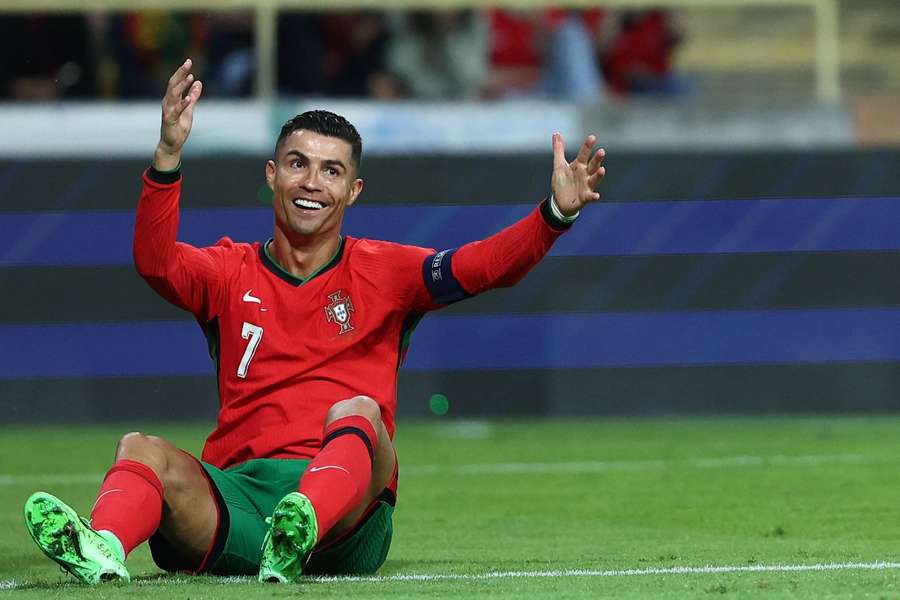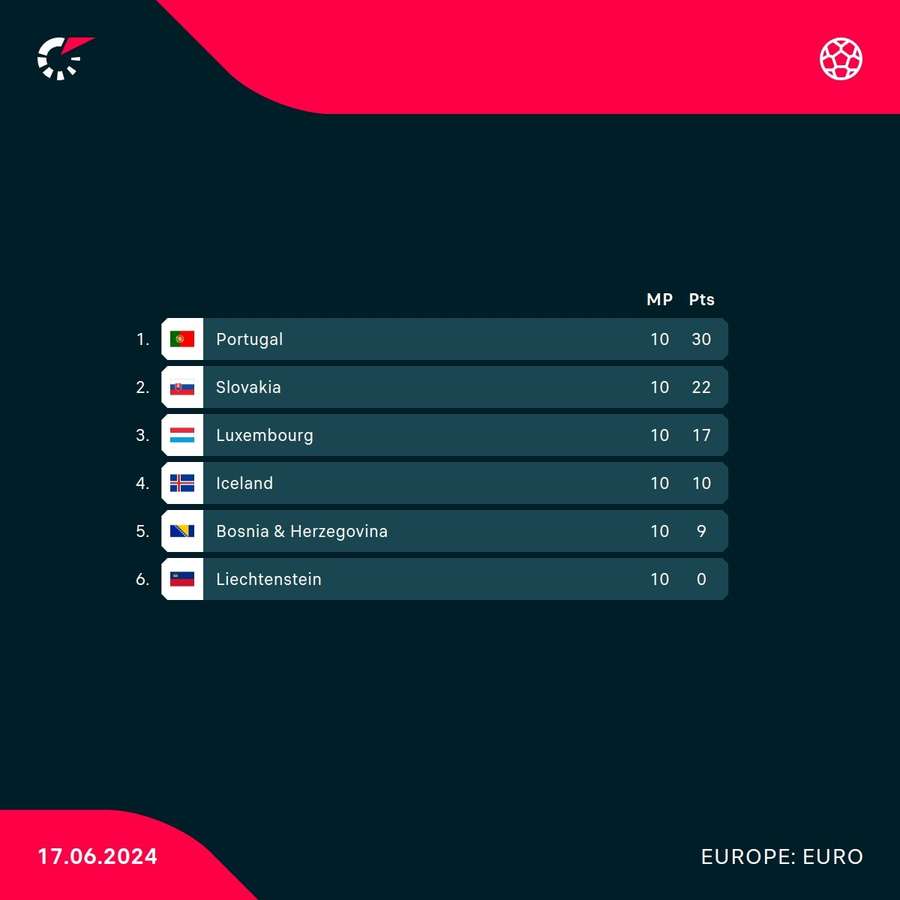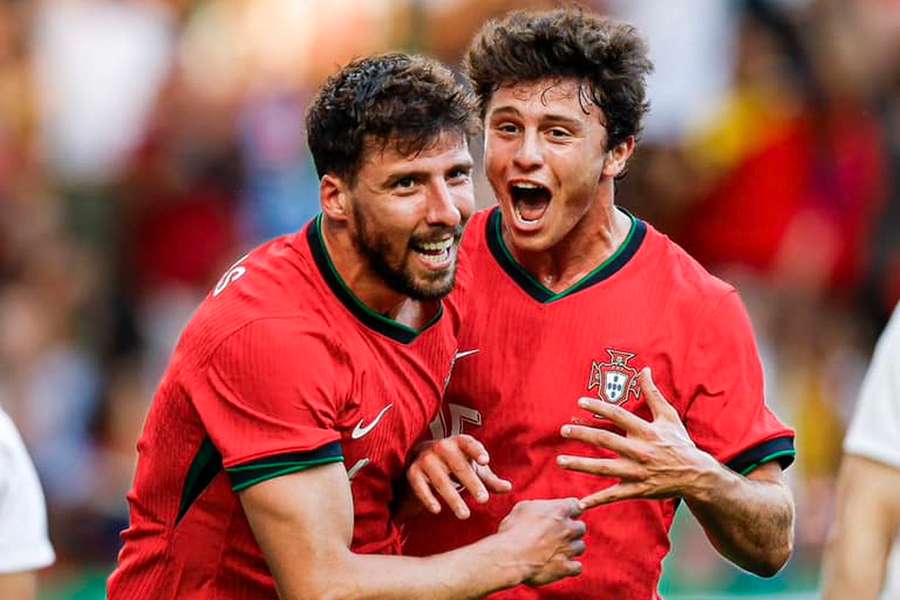EURO 2024 Preview: Is it time for Portugal to live up to their potential?

European champions in 2016 and winners of the Nations League in 2019, Portugal have cemented their place among the elite of continental football this century.
They haven't missed the group stage of a major competition since 2002 and, despite some mixed results at the World Cups, they haven't failed at the European Championships, always making it past the group stage.
It is also in continental competitions that the national team has experienced its greatest disappointments and its greatest joys.
Platini's extra-time goal in the semi-finals of EURO 1984, Zidane's penalty in 2000, which left Portugal on the brink of history, and Andreas Charisteas' header in the 2004 final, which silenced a packed Estadio da Luz, were all left behind when Eder decided to kick a ball from the edge of the box and put it beyond the reach of Hugo Lloris in the 2016 final.
But, the defence of the title won in France was not brilliant.
In 2021, at the European Championships designated as 2020, Portugal once again benefited from being one of the best third-placed teams to progress, in a group with France and Germany, but ended up falling to Belgium in the round of 16, in a display without much fire.
In 2024 there's a different air around the team.
Roberto Martinez is now the coach and he's achieved something no one else has ever: qualifying with only wins.
Admittedly, the opponents weren't particularly inspiring (Slovakia, Luxembourg, Liechtenstein, Iceland and Bosnia), but the feat had never been achieved before and has once again generated enthusiasm around the national team.

Eight years on from Paris and only Rui Patricio, Pepe, Danilo Pereira and Cristiano Ronaldo remain among the heroes who secured Portugal's first major trophy.
However, a talented generation will be hoping to make their mark again in Germany, where Portugal have already come close to success, only to stumble again against France in the semi-finals of the 2006 World Cup.
On June 18th, a journey that generates a lot of expectation gets underway.
Strengths
Goals, goals and goals. If there's one thing Martínez's team doesn't lack, it's putting the ball in the net. Fernando Santos was characterised by a very pragmatic style, without any great attacking adventures, which almost seemed to shackle the team's creative minds.
Now it's the opposite and there's yet to be an official game in which Portugal haven't scored with Martinez on the bench.
In 15 games they have scored 49 goals (an average of three per game). They scored 15 against Luxembourg (6-0 and 9-0) in qualifying, scored eight in two games against Bosnia and put five past Sweden.
Only Slovenia managed to avoid the Portuguese onslaught, in a friendly in March.
With names like Cristiano Ronaldo, Goncalo Ramos, Joao Felix, Rafael Leao, Diogo Jota, Francisco Conceicao, Bernardo Silva, Vitinha or Bruno Fernandes, you can see the potential of this team. The only question is how to utilise it.
The game with Croatia before the tournament saw the first lacklustre attacking display. With too many players looking to receive the ball in the centre, and no names to unbalance in the box, the national team had a hard time finding space.
A player like Leao takes on a new importance and becomes necessary to help bring life to the flank.
Weak points
After conceding just two goals in the entire qualifying phase - both against Slovakia - Portugal entered 2024 with a lot of defensive difficulties.
In the five internationals played this calendar year, they only kept a clean sheet against Ireland and conceded two goals in each of the four matches before that.
In all of these matches, the defence line was configured differently. Whether it was three centre-backs or four, they were never the same and this may help explain some of the lapses, with the normal mismatch of those who aren't used to playing together.
However, there is one unanswered question just a few days before the official opener: Who will be in Portugal's defence against the Czech Republic?

Ruben Dias seems to have a fixed place in the centre of defence, but it's unknown who his partner (or partners) will be.
Pepe has physical issues that arise, Goncalo Inacio and Antonio Silva are debutants in major competitions and are fighting for a place - Danilo Pereira could also occupy the position.
In terms of full-backs, there's the question of Nuno Mendes and how he'll be managed in physical terms.
Theoretically, he'll be the man on the left, but Diogo Dalot and Joao Cancelo can also play there, with the other taking the spot on the right.
The question remains, not least because there was no intention of working out a routine in the individual training sessions.
We'll see if Portugal pay the price, not least because the Czech Republic and Turkey were the teams that scored the most goals in their respective qualifying groups.
Ideal XI
If the issues in defence are giving Martinez headaches, from midfield forward there is plenty of quality for the coach. In terms of constraints, there is the tactical question of whether the midfield will have two or three players.
Bruno Fernandes seems settled and Joao Palhinha has the edge in the deeper midfield positions, with more defensive duties.
Vitinha is coming off the back of a season in which he was voted PSG's best player by Luis Enrique, Joao Neves was one of Benfica's best players, Matheus Nunes won the title with Manchester City, Ruben Neves could give the number six position another profile, as could Danilo Pereira. It's a good problem for the coach to have.
The same goes for the attack. Bernardo Silva can provide a more linking profile down the flank, and Joao Felix has the same effect on the left.
Pedro Neto works more vertically, Rafael Leao brings flair, and Francisco Conceicao irreverence. More centrally, Ronaldo is a born goalscorer, Goncalo Ramos brings a capacity for work and Diogo Jota a different profile, but also with an excellent nose for goal.
There's something for everyone.
The key to success
Like all champions, Portugal will have to find a balance. Attacking power has to be combined with defensive routine, because winning a game in the European Championship is complicated, and doing so conceding two goals is even more difficult.
It's important to create defensive routines, whether it's a four-man defence or a five-man defence, that allow the Selecao to have a solid structure and then free up the attacking players who can make a difference and who are at the level to be the best at this European Championship.
That's Roberto Martínez's big task.
Predictions
The group stage looks relatively routine for Portugal. Bearing in mind that of the 24 teams starting the competition, only eight will be leaving at this stage, it seems unlikely that Portugal won't stay in Germany for the knockouts.
In the round of 16, if the theory holds, Portugal could face the third-placed team from Group A (Germany, Scotland, Hungary and Switzerland), B (Spain, Italy, Croatia and Albania) or C (Denmark, England, Serbia and Slovenia). It's never going to be an easy task, but Portugal will always be favourites, just as they will be in the eventual quarter-finals, where they will face whoever wins between the second-placed teams in Group D (France, Austria, Poland and the Netherlands) and E (Slovakia, Ukraine, Romania and Belgium).
All in all, it looks like a relatively open path to the semi-finals, if Portugal top their group. And anything is possible from the semi-finals onwards.
